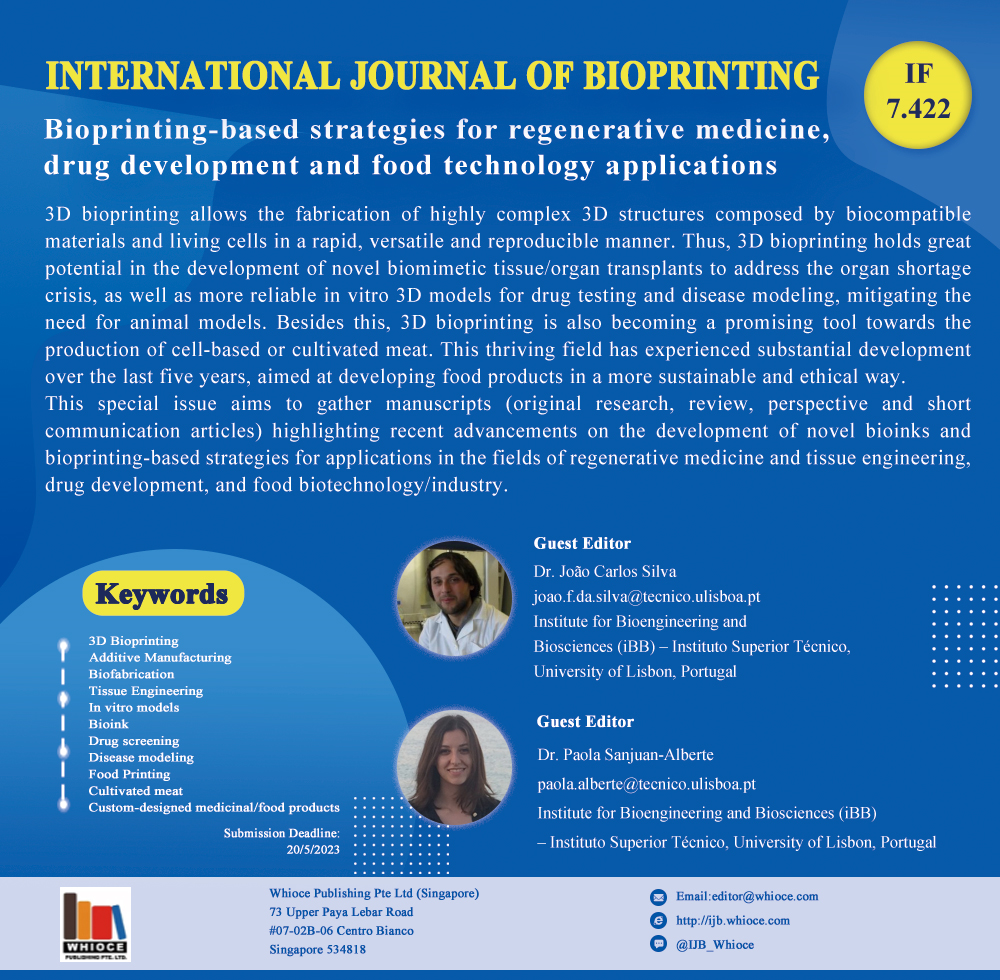Bioprinting-based Strategies for Regenerative Medicine, Drug Development and Food Technology Applications

Dear colleagues:
3D bioprinting allows the fabrication of highly complex 3D structures composed by biocompatible materials and living cells in a rapid, versatile and reproducible manner. Thus, 3D bioprinting holds great potential in the development of novel biomimetic tissue/organ transplants to address the organ shortage crisis, as well as more reliable in vitro 3D models for drug testing and disease modeling, mitigating the need for animal models. Besides this, 3D bioprinting is also becoming a promising tool towards the production of cell-based or cultivated meat. This thriving field has experienced substantial development over the last five years, aimed at developing food products in a more sustainable and ethical way.
This special issue aims to gather manuscripts (original research, review, perspective and short communication articles) highlighting recent advancements on the development of novel bioinks and bioprinting-based strategies for applications in the fields of regenerative medicine and tissue engineering, drug development, and food biotechnology/industry.
Multimaterial and multiscale scaffold for engineering enthesis organ
3D (bio)printing of magnetic hydrogels: Formulation and applications in tissue engineering



